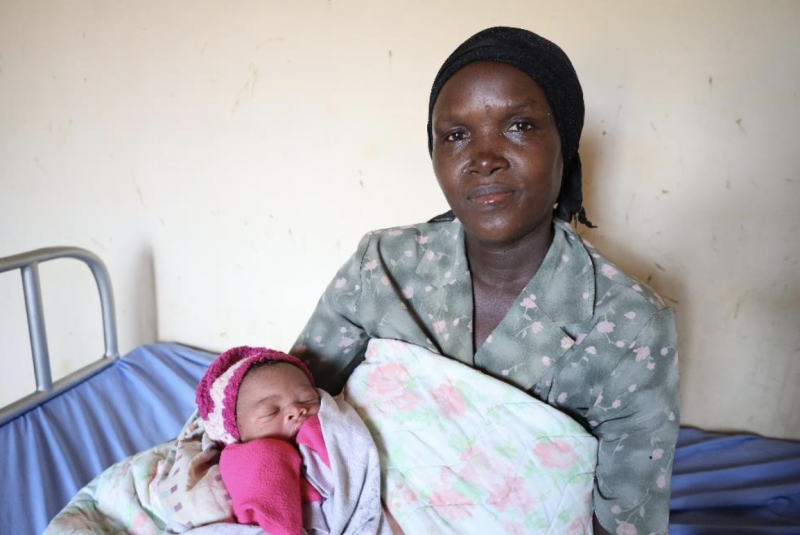
Rwanda’s primary health care strategy improves access to essential and life-saving health services
Health System & UHC
February 18, 2022
African Region
Rwanda
Rwanda
Musanabera Claudine, 30, needed to bring her child who was presenting with a cough and fever to the Musovu Health Post in Bugesera District. Thankfully, a health post had already been established close to where they live. She recalled how difficult it was when she and others in her community had to walk for up to two hours to reach the nearest health centre in Juru or Mwogo.
“I used to seek health services at Kabagore health centre in Juru, but this place is closer now. There is one and a half hours between Musovu and Juru. When you don’t even own a bicycle the situation can go bad really quickly before you can reach the health post,” said Musanabera.
The Musovu Health Post in Bugesera District serves a population of 5,175, seeing between 30 to 100 patients per day, with a greater peak during the malaria period. It provides several outpatient health services, from noncommunicable disease check-ups, to pharmacy, laboratory testing, and maternal and child health services.
For pregnant women and their babies, this health post is life-saving. Previously, expectant mothers would have had to hire a motorcycle for a costly 2,500 Rwandan Francs (around $2.43) or walk for hours to deliver their babies safely in an institution. Now, with the health post closer to home, they can receive the services they need when and where they need them.
Rwanda has such a hilly terrain that locals call it ‘the land of a thousand hills’. With 83% of Rwandans living in rural areas, travel to a health facility has often been challenging for many families and communities. In 2010, the average walking time to the nearest health facility was 95 minutes. By 2020, this was halved to 47 minutes but many people still face difficulties in accessing the health services they need.
The government has made primary health care a priority to improve access to health services and make progress towards universal health coverage (UHC). Its goal is to ensure that by 2024, people need to walk less than 24 minutes to visit a health facility. This will be achieved through a network of health posts, such as the one in Musovu, located in communities nationwide. The Government is seeking to establish a public-private-partnership approach in which some health posts are managed by public health centres, some by non-governmental organizations and others by nurses from the private sector. This hybrid and harmonized approach could improve both the effectiveness and sustainability of the health post programme.
“Establishing the health posts programme is a very effective strategy to increase access to primary care, which meets 80% of the population’s health needs,” said Dr Nathalie Umutoni, Director of Clinical and Public Health Services Governance Unit at the Ministry of Health.
Health posts: bringing health services closer to the community
Health posts are intermediary primary care facilities located at the community level. They provide comprehensive primary care services to communities, and are located at a reasonable walking distance from people’s homes. They also serve as an interface between health centres and community health workers. The community health workers provide selected health services – mainly related to maternal and child health and malaria – on a voluntary basis in each of the 14,837 villages (the lowest administrative entity of the country) and in health centres, which operate in each of the 416 upper administrative levels of Rwanda.
With support from administrative districts, communities and partners, the Ministry of Health has, since August 2021, established 1,179 health posts that provide basic health services nationwide to underserved communities. The Ministry of Health has now established 21 new health posts, known as second-generation health posts, with upgraded services such as maternity, laboratory, dental care, ophthalmology, and circumcision in various areas of the country.
The plan is to scale up the programme throughout the country, with a focus on 15 border districts (out of 30 districts in total), which were found to be more at risk of health shock during the COVID-19 pandemic. The Government intends to establish 623 health posts in areas that still do not have facilities by 2024. This will happen under the country’s fourth Health Sector Strategic Plan 2018-2024, for which WHO, through the UHC Partnership, provided substantial technical, financial and coordination support.